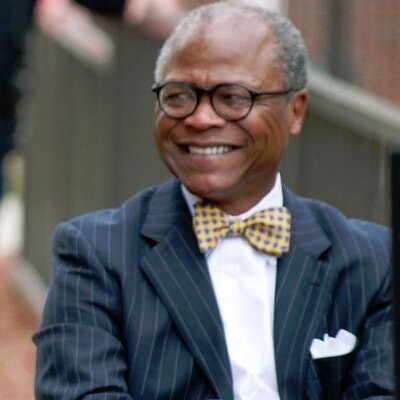From time to time movies, musicals, poems and books are reintroduced to a newer often younger audience. Classics like "High Noon", "The Magnificent Seven" and "West Side Story" come to mind. The stories and messages they convey are timeless and provide lessons learned to succeeding generations. Many Black parents and grandparents lament the fact that their progeny sometimes are unaware of their own history including civil rights leaders, literary figures, artists and elected officials who fought for justice and equality.  Dr. Alvin J. Schexnider
Dr. Alvin J. Schexnider
Organ Thieves by Chip Jones, a former Richmond Times-Dispatch reporter refreshes our memory and reintroduces to a new generation L. Douglas Wilder, known primarily to many as the first Black to win statewide office as Lieutenant Governor; the nation’s first elected Black Governor; and Richmond’s first popularly elected Mayor.
Many will learn for the first time that before his election to the Virginia Senate in 1969, Wilder had earned a solid reputation as a skilled and highly respected trial attorney. It is here where the book, Governor Wilder and VCU intersect in timely fashion given current efforts to suppress and ignore Virginia’s sordid past. It’s doubtful that the lawyer cum professor and the university could have predicted this confluence of events but such is life.
In the vernacular of the streets, L. Douglas Wilder has been on the case for a very long time. Racism was stifling then just as it is now albeit more direct and in your face in the 1950s when he started his law practice. That he continues to confront racism wherever he finds it should come as no surprise. And so should we which is why efforts to sanitize history is dangerous, self-defeating and must be resisted. The Organ Thieves is getting attention at VCU where Wilder teaches at the School that bears his name and where the first heart transplant in the South occurred on its MCV campus. Although perhaps less well known than the Tuskegee syphilis study or the appropriation and monetizing of Henrietta Lacks’ cells at Johns Hopkins University, the brazen removal of a patient’s heart under hazy circumstances is no less egregious.
The Organ Thieves tells the story of MCV’s first heart transplant in 1968, removed from a Black man without his family’s consent and placed in the body of a white man. Wilder is hired to represent the involuntary donor’s family and sues.
We may talk in genteel terms about continuing efforts to create a more perfect union but we cannot ignore the omnipresence of racism. It is embedded in the social fabric of the nation and we must be intentional about its eradication. Our youth in particular must understand this but it won’t happen without a keen awareness of racism past and present.
I have been around long enough to witness gradual change from colored and white water fountains to affirmative action to the current infatuation with “diversity.” I am skeptical. As Richard Thompson Ford wrote in a recent essay in the Chronicle of Higher Education, “Everyone to the left of Marjorie Taylor Green claims to value diversity.” He notes that affirmative action purported to be about justice but diversity makes no such claim. Instead, diversity has become a substitute for justice. The replacement of affirmative action with diversity is reflected in a decline in the number of Black faculty in higher education compared to other ethnic groups at universities across the country including Virginia. The growth of the diversity industry notwithstanding, I see no evidence of a reversal of this trend.
The strength of democracy rests upon an enlightened and informed electorate. Our universities and colleges have an especially important role to play in this effort. During the protest era of the 1960s and 1970s presidents like Benjamin Mays, Theodore Hesburgh and Clark Kerr were visible and vocal. Today’s culture wars dominate our politics especially around education yet campus leaders are conspicuously silent.
We should never shy away from telling the truth. That’s why VCU’s students, faculty and staff and the broader community were fortunate to attend a recent symposium on “Racism, Health and Accountability.” Governor Wilder discussed his role in the lawsuit regarding the heart transplant and the persistence of racism in society and higher education. A few days earlier VCU issued an apology that Wilder labeled “fake remorse.” It remains to be seen if VCU offers more.
It is important that we revisit certain events and reintroduce the figures who shaped them. The Organ Thieves offers an opportunity to discuss the intersection of civil rights, the law and medical ethics. For students in particular, it’s an occasion to remember that the struggle for racial equality and justice is far from over—and that some have been on the case a very long time.
Dr. Alvin J. Schexnider is a retired university president and a senior fellow and senior consultant at the Association of Governing Boards of Universities and Colleges (AGB).















